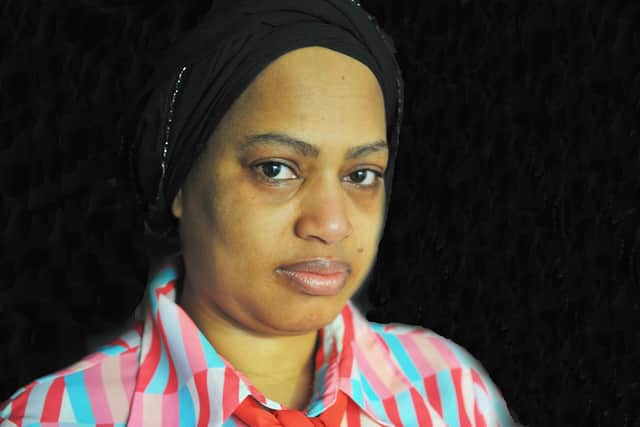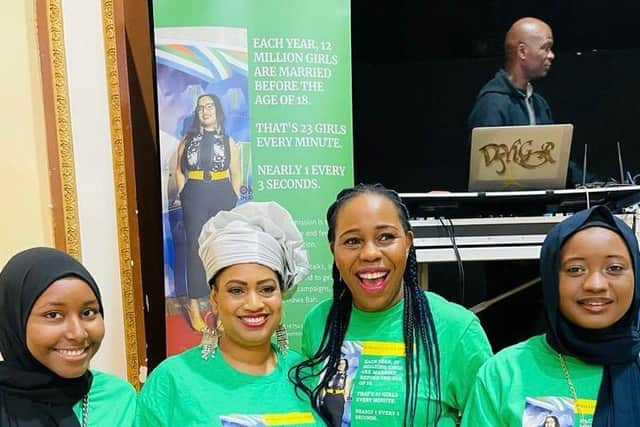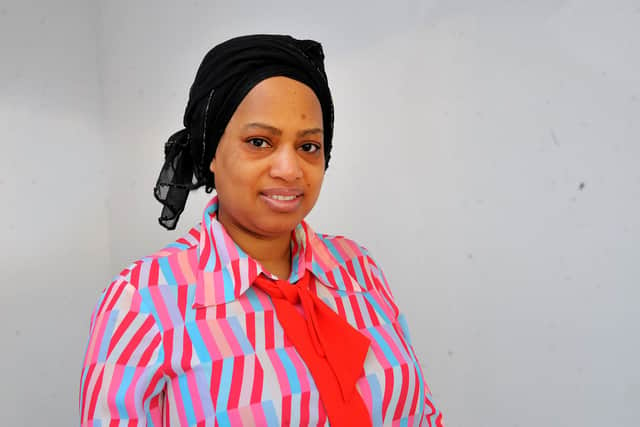Female genital mutilation: Leeds survivor relives the night she thought she would be killed
and live on Freeview channel 276
It was there that she was subjected to female genital mutilation (FGM) – the practice of deliberately cutting, injuring or changing the female genitals for non-medical purposes. Illegal in the UK, FGM still persists in some cultures and was prevalent in Hawa’s home country of Guinea when she was young.
Now living in Leeds, 33-year-old Hawa is an advocate for other FGM victims. She works with survivors like herself at the city’s Blossom Clinic to give them the confidence to share their experiences and ensures they know about the medical help available.
Advertisement
Hide AdAdvertisement
Hide AdIt is evident that her tireless work is driven by the experiences of her formative years. Hawa remembers clearly the night that she was woken by her stepmother and led deep into the forest. Locking eyes with a friend, Hawa thought they were going to die.


She said: “I have been abused and my mother is not in the house, so I thought this was the end of my life. They took the first one of us. After a few minutes, I heard my friend screaming. I thought my life was gone. I gave up there until my turn came.”
A few women held her down tightly, putting a cloth in her mouth and covering her eyes. She said: “And they just cut me like that. I was screaming until they finished and I remember the pain. I wanted to die.”
Three days later, Hawa was examined and cut again. She remembers the pain of her injuries healing and winces as she talks about the herbal leaf used as a form of medication.
Advertisement
Hide AdAdvertisement
Hide Ad"It is a cultural thing. They believe that all women should be cut. If you are not cut, you are not clean, you are not a complete woman,” said Hawa, who believed the same for a long time. “I came here and started learning about it. I learnt the Bible and also the Quran – it is not there. It is something that they use to abuse the child and harm them, and then say it’s from God.”


Learning about how other cultures view FGM has built Hawa’s confidence to speak about it. She said: “How can we stop this if we don’t talk about it? We have to raise our voices so they can hear us here and back home. They will be educated to know this is wrong – they are killing their children.
"If we want to end it, someone must come forward. I choose to be that person – to come forward and talk about it.”
Hawa became an advocate for the Leeds-based Black Health Initiative before launching her own charity HawaDal Peace of Mind in 2016. It helps new arrivals in the UK with how to raise their children here, their rights, the law and more. It was the product of her own struggles when she fled her abusive husband.
Advertisement
Hide AdAdvertisement
Hide AdHer estranged husband was in his 50s and Hawa was just 13 when they were wed. Living with a husband as old has her own father and his other older wives, the task of the running the house fell on her shoulders – and Hawa felt powerless.


She said: “The marriage was horrible, I didn’t choose him, I didn’t know him. The abuse started from my dad’s house, with my stepmother, and then my husband also abused me. It’s so hard to talk about it. It brings back flashbacks and bad memories.”
Hawa had tried to escape many times without success, including making an attempt to drown herself in the sea. She finally got away at the age of 17 with the help of an elder lady in her society who made all the arrangements for her to escape safely to London.
Shortly after her relocation to Leeds, Hawa attended English classes at Leeds City College and began making friends. She said: “The more I lived here, I started learning about the culture – it was a very difficult thing for me because I came from a different culture and background; the food, the dress code, the weather, everything was different.”
Advertisement
Hide AdAdvertisement
Hide AdNow happily engaged, her charity was given a Queen’s Award in 2022 for its work in the Voluntary Services. She said: “It is really encouraging, I have had a lot of challenges on the way. If other people are looking down at you, at least other people are seeing your good work. I just said, in this world, whatever be the case, just be strong and not let anyone pull you down.”
